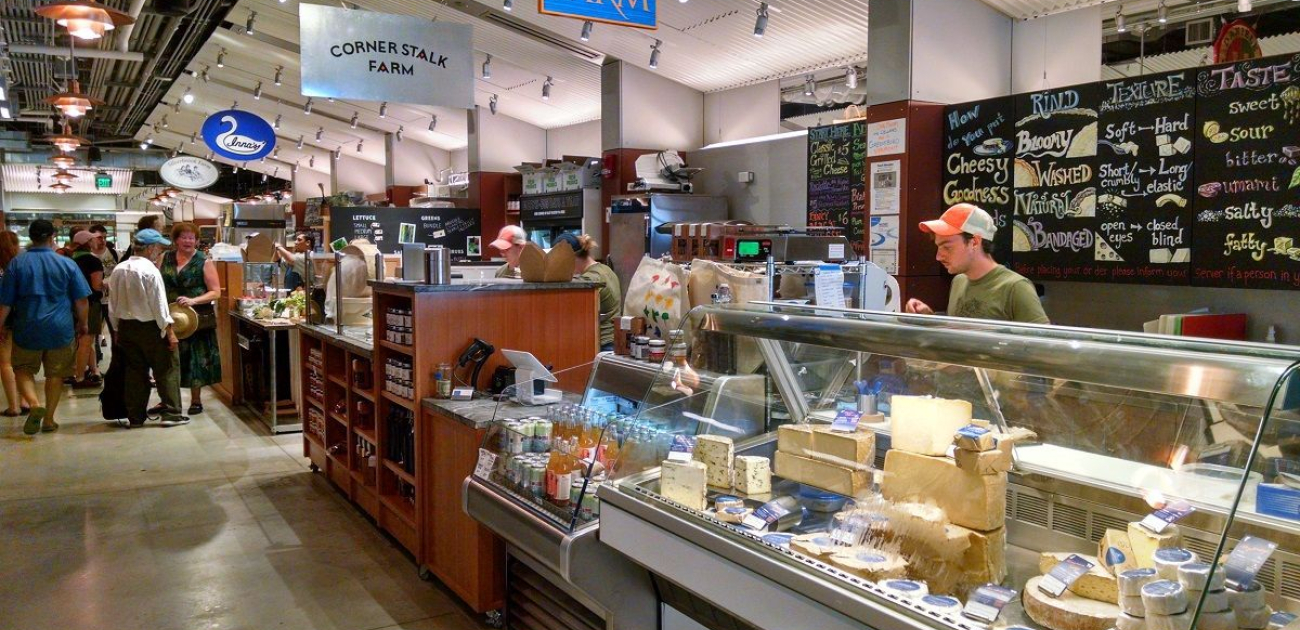Upscale Food Halls—On Trend and On The Rise
The growth of high-end food halls is taking off around the country as consumers seek fast, fresh, high-quality, chef-driven meals with a local touch, and as landlords seek to cash in on the continued growth of fast-casual dining. These boutique-style, upscale food halls are modeled more after famous European markets like Barcelona’s Mercado de la Boqueria than after airport or suburban mall food courts. Following the success in New York City of Eataly, Todd English Food Hall at the Plaza and Chelsea Market, food halls are experiencing a wave of growth across the country.
Eataly, which launched its first store in Turin, Italy in 2007, opened in New York City in 2010 with a mix of restaurants and retail market stands selling high quality Italian food products from both Italian and New York area producers, with New York celebrity chef and restaurateurs Mario Batali and Joe Bastianich providing an imprimatur of quality and authenticity. Eataly New York features gourmet groceries, coffee and pastries, a variety of grab and go options and full service restaurants to drive business throughout the day. Eataly now operates two markets in New York City and one in Chicago, is developing a store in Los Angeles, and has just opened a 45,000 square foot store at Boston’s Prudential Center. Eataly’s newest store in Boston will have its own local flair, a collaboration with local Boston celebrity chef Barbara Lynch and products from producers across New England to compliment the wide range of Italian products offered for sale.
Rather than a single entity operating all of the stands and restaurants, as is the case at Eataly, New York’s Chelsea Market, located near the High-Line, but a tourist destination in its own right, offers a well-curated selection of high-quality shops, food stands, and restaurants, with a focus on local, New York businesses. This template is being replicated in different neighborhoods across New York City with new food halls such as UrbanSpace Vanderbilt, and Gotham West Market. It is also being replicated in other cities across the country, as evidenced by Union Market in Washington DC, Ponce City Market in Atlanta, and the Pine Street Market in Portland, to name a few.
Food halls sit at the intersection of a number of trends and desires. For consumers, these include increasing spending on food and, in particular, on restaurants, preferences shifting toward unique experiences, and demand for fresh, healthier food, with a local twist. For restaurants, food halls offer a great location and the ability to open a physical presence for a fraction of the capital commitment of a standalone store. And for landlords, food halls are a highly desirable retail amenity, in a retail sector experiencing strong growth, with the ability to mitigate risk across a larger number of smaller tenants. Food halls may not be the answer for every retail space. But with high-end food halls operating successfully in many different markets across the country, the number of these upscale food halls seems likely to continue increasing each year.
Do you want more information?
 George W. Evans
George W. EvansMr. Evans is an associate in the firm's Real Estate group, and focuses his practice in the areas of real estate and real estate finance. George represents owners, operators, developers, lenders, borrowers, landlords, tenants and investors in sales, acquisitions, financings and leases of medical, residential and commercial properties across the United States.

